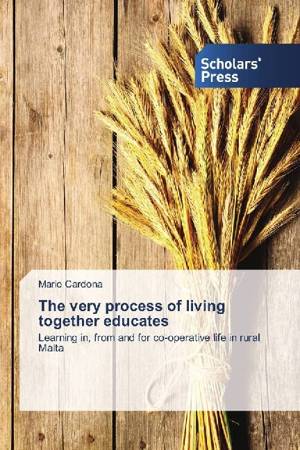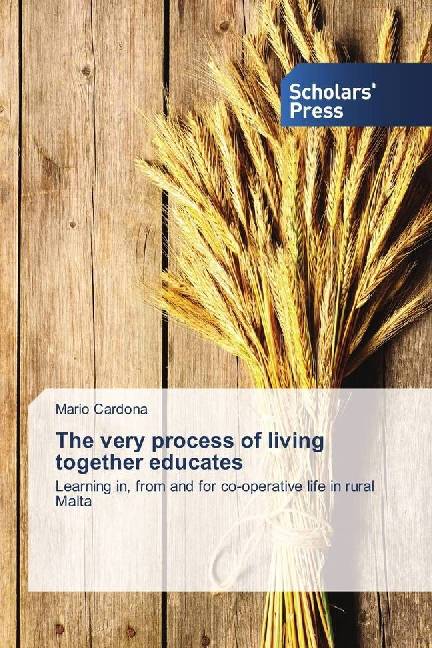
- Afhalen na 1 uur in een winkel met voorraad
- Gratis thuislevering in België vanaf € 30
- Ruim aanbod met 7 miljoen producten
- Afhalen na 1 uur in een winkel met voorraad
- Gratis thuislevering in België vanaf € 30
- Ruim aanbod met 7 miljoen producten
Zoeken
The very process of living together educates
Learning in, from and for co-operative life in rural Malta
Mario Cardona
Paperback | Engels
€ 93,95
+ 187 punten
Omschrijving
Co-operatives originated as a popular response to satisfy the needs of communities living in difficult social and economic conditions in mid-nineteenth century Britain. The British colonial authorities adopted the co-operative model to spur local development in the colonies, making them more productive and less reliant on the British Exchequer. This was how the co-operative model took off in Malta. However, some local communities in Malta appropriated this community-based organisational model in order to suit their own aims. This work explores the learning that goes on inside two community-based rural cooperatives in Malta. What do people learn while participating in the running of the co-op, as elected members of the management committee, as employees or as volunteers? What do members, customers, the local community, or policy makers learn from the co-op? What do people learn for the co-op? That is, how do participants in co-ops learn how to turn co-operation into a political tool that enables them to envision and create alternative communities where they can exert more control over their individual and collective lives?
Specificaties
Betrokkenen
- Auteur(s):
- Uitgeverij:
Inhoud
- Aantal bladzijden:
- 268
- Taal:
- Engels
Eigenschappen
- Productcode (EAN):
- 9783659845000
- Uitvoering:
- Paperback
- Afmetingen:
- 150 mm x 220 mm
- Gewicht:
- 418 g

Alleen bij Standaard Boekhandel
+ 187 punten op je klantenkaart van Standaard Boekhandel
Beoordelingen
We publiceren alleen reviews die voldoen aan de voorwaarden voor reviews. Bekijk onze voorwaarden voor reviews.







